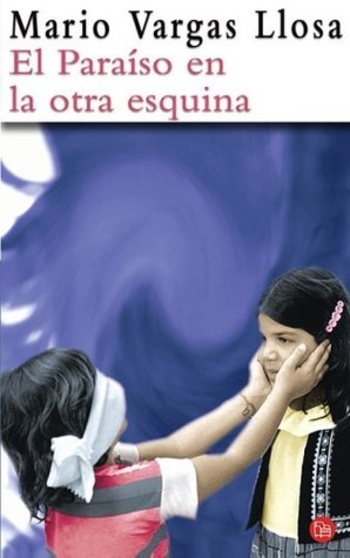El Paraíso en la otra esquina

El Paraíso en la otra esquina
Год выхода 2003
¿Dónde se encuentra el Paraíso? ¿En la construcción de una sociedad igualitaria o en la vuelta al mundo primitivo?Dos vidas: la de Flora Tristán, que pone todos sus esfuerzos en la lucha por los derechos de la mujer y de los obreros, y la de Paul Gauguin, el hombre que descubre su pasión por la pintura y abandona su existencia burguesa para viajar a Tahití en busca de un mundo sin contaminar por las convenciones.Dos concepciones del sexo: la de Flora, que sólo ve en él un instrumento de dominio masculino y la de Gauguin, que lo considera una fuerza vital imprescindible puesta al servicio de su creatividad.¿Qué tienen en común esas dos vidas desligadas y opuestas, aparte del vínculo familiar por ser Flora la abuela materna de Gauguin? Esto es lo que Vargas Llosa pone de relieve en esta novela: el mundo de utopías que fue el siglo XIX. Un nexo de unión entre dos personajes que optan por dos modelos vitales opuestos que desvelan un deseo común: el de alcanzar un paraíso donde sea posible la felicidad para los seres humanos.In English:In 1844, Flora Tristan embarked on a tour of France to campaign for workers' and women's rights. In 1891, her grandson Paul Gauguin set sail for Tahiti, determined to escape civilization and paint primitive masterpieces. Flora died before her grandson was born, but their travels and obsessions unfold side by side in this deft, utterly absorbing novel.brbrFlora, the illegitimate child of a wealthy Peruvian father and French mother, grows up in poverty, and after fleeing a brutal husband, journeys to Peru to demand her inheritance. On her return, she makes her name as a popular writer and a champion of the downtrodden, setting herself the arduous task of touring the French countryside to recruit members for her Workers' Union. Paul, struggling painter and stubborn visionary, abandons his wife and five children for life in the South Seas, where his dreams of paradise are poisoned by syphilis, the stifling forces of French colonialism, and a chronic lack of funds, though he has his pick of teenage Tahitian lovers and paints some of his greatest works.
